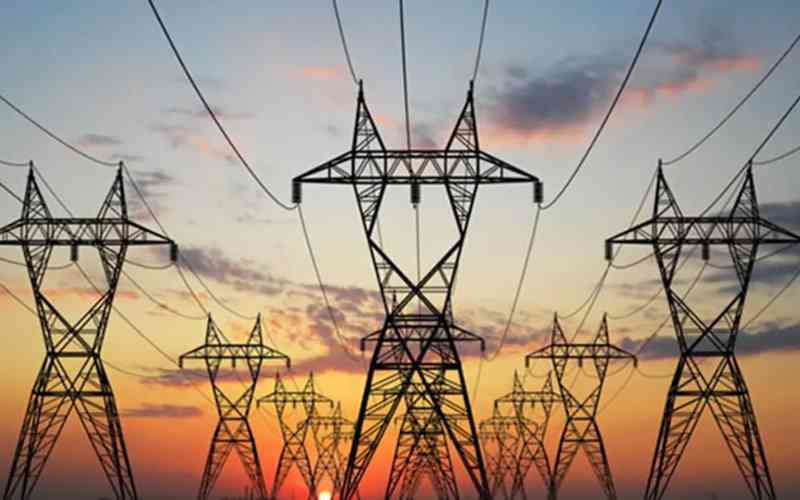
Zimbabwe has been, during the past months, experiencing extended power blackouts due to increased load-shedding, which the power utility company Zesa is attributing to low water levels for power generation at Lake Kariba.
Load-shedding has seen some parts of the country experiencing 24-hour blackouts, disrupting all economic activity, from heavy industrial sites and central business districts to backyard workshops.
The health sector has not been spared either.
The demand for electricity has generally increased in the last 20 years due to the growing population, increased industrial activity, modern farming against an almost stagnant supply.
Zimbabwe is expected to generate about 2 400MW of electricity per day, however, less than 1 400MW are produced daily. The result is an obvious shortage of electricity.
The health sector is a critical sector that should never be overlooked when issues of power outages are concerned.
With modernisation and digitalisation, power is needed to run health institutions and for lives to be saved, electricity should be available.
Universal health coverage cannot be talked about without decent power in health institutions. Many activities at healthcare institutions are power dependent.
- System Tazvida’s grave vandalised
- System Tazvida’s grave vandalised
- Low tariffs weigh down ZETDC
- ‘Systems disturbance hits Hwange Power Station’
Keep Reading
The registration of patients is a critical step towards treating patients and if power is down, then clinics and hospitals are forced to resort to manual registration which is tedious and slow.
That automatically means there will be unnecessary delays at health care facilities.
Hospitals carry out many operations on a daily basis and running without power would mean many surgical operations are suspended hence the waiting lists continuously grow.
Some patients can die before they are operated on and hospital mortality can suddenly spike in other critical areas such as intensive care units if power backups are not reliable.
Patient investigations depend on electricity and included here are blood tests under haematology, biochemistry, radiological investigations like X-rays, ultrasound scans, computed tomography, magnetic resonance imaging.
Drugs can lose their potency especially those that should maintain the cold chain like vaccines. Vaccines include Covid-19 vaccines, Hepatitis, measles, polio and pneumococcal among others.
Without reliable power backups, the potency of such drugs can suddenly evaporate. That would be quite detrimental to public health as the drugs play a significant role in primary health care.
The importance of the BCG vaccine against Tuberculosis should be understood as millions of children are saved every year.
How many patients need to be carried on stretchers and put in lifts in multi-storey hospitals? What happens if the available power back-ups cannot support the electric lifts?
It will be difficult for relatives to carry their sick relatives up. What happens with the electricity- powered water systems at clinics and hospitals in the event of power outages without adequate backups?
What of the hospital lighting system when patients need to receive their medications which include oral drugs, intramuscular, subcutaneous or intravenous system.
The health sector is one sector that should be spared from protracted power outages. One research done in Ghana showed that hospital mortality can increase by at least 43% if power outages take at least three hours per day.
Imagine losing patients who have potential to survive because there is sudden power outage to disturb surgery, drug administration, hospital admission, drug storage, kitchen, laundry etcetera.
In view of the undeniable reality of power outages, it is prudent that healthcare facilities have reliable power back-ups that automatically switch on in times of sudden power loss.
It is the duty of the hospital management to have adequate back-ups like solar systems and generators that have enough fuel. I was at one provincial hospital one day. The hospital has a big generator which was brought by government, alas; there was no diesel in the generator.
Maladministration will surely destroy healthcare facilities. It does not need the President of Zimbabwe to fuel a hospital generator and if the hospital administrators cannot do such simple tasks, then they should not hold office.
It is prudent for the power supply company, Zesa, to have a reliable load-shedding schedule so that healthcare facilities can plan what can be shelved or what can be done.
Ideally, big healthcare facilities in Harare such as Sally Mugabe Hospital, Parirenyatwa Hospital, Avenues Clinic, Westend Hospital, Chitungwiza Hospital and many other hospitals should be spared from load shedding. This would call for the establishment of special power lines to such institutions. The Minister of Energy should urgently consider that.
Power outages are a hindrance to sound health service delivery. Patients deserve better care but without adequate power, all things go astray!






